1930
Having existed as a clinical operation at Emory University Hospital since 1925, the Department of Surgery became an official academic medical institution when Daniel C. Elkin, MD, was appointed its first official chairman in 1930.
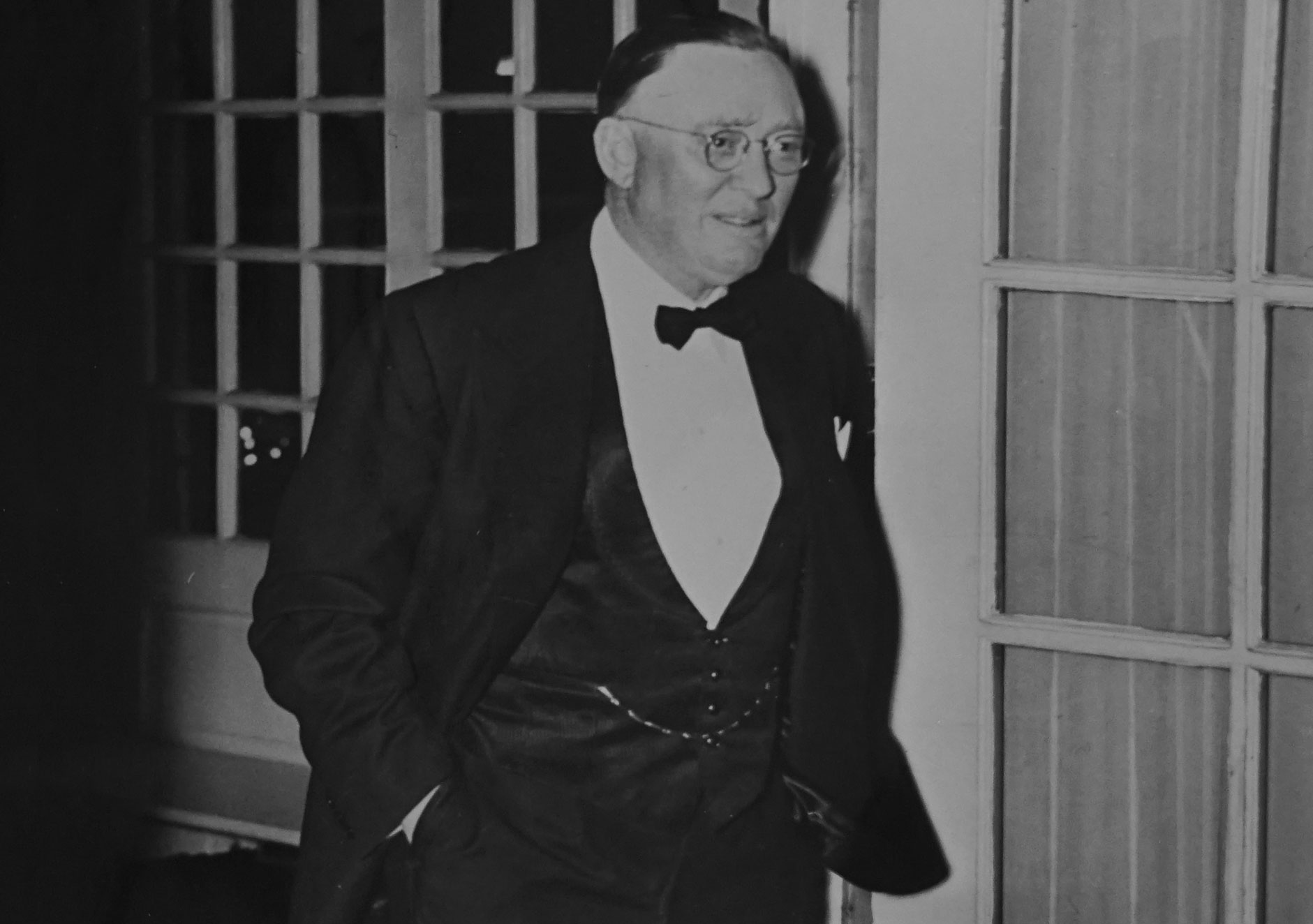
1939
Dr. Elkin became the first beneficiary of a substantial endowment established by Joseph Whitehead, Jr., the son of Coca-Cola magnate Joseph Whitehead, Sr., and was appointed the first Joseph Brown Whitehead Professor and Chair of Surgery. Numerous Whitehead family funds helped create the Department of Surgery's original infrastructure, including the construction of research labs, expansion of various divisions, and the design and building of the Whitehead Surgical Pavilion.
Dr. Elkin's achievements included elevating teaching to equal footing with clinical activities and adding a year to the surgical residency. He was a prolific author throughout the 1930s, 1940s, and early 1950s, and made lasting contributions to surgical practice that included his description of pericardiocentesis for cardiac tamponade and popularization of the surgical exposures used to access the proximal subclavian artery, the peroneal artery, and the intraosseous portion of the vertebral body.
1953
The Emory Clinic was established, with various department faculty being founding members, including William McGarity, MD, whose trenchant studies of hyperparathyroid cases contributed to a greater understanding of multiglandular parathyroid disease; and Charles Hatcher, MD, who performed Georgia's first "blue baby" open heart procedure in 1962, the state's first single, double, and triple aortic valve replacements in 1963 and 1964, and the state's first successful coronary bypass surgery in 1970.
1957
John D. Martin, MD, was appointed the second J.B. Whitehead Chair of Surgery, serving until 1971. Dr. Martin successfully integrated the separate residency programs at Grady, Piedmont, Emory, and the Atlanta VA hospitals, streamlining and creating a more effective curriculum.
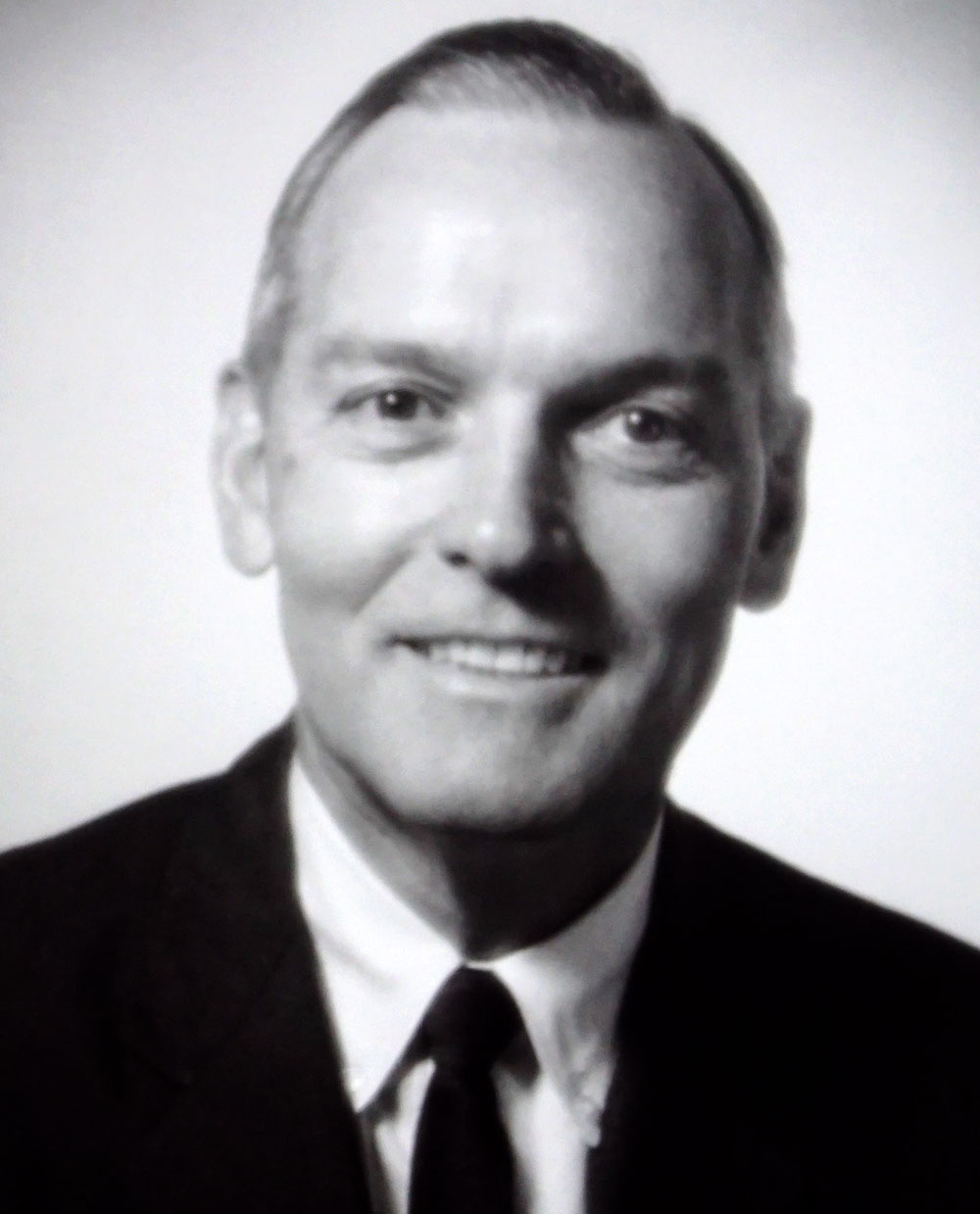
1964
Asa G. Yancey, MD, became the first African American faculty member at Emory University School of Medicine when he joined the Department of Surgery. He was a former medical director of Hughes Spalding Pavilion of Grady Memorial Hospital and served as medical director of Grady from 1972-1989.
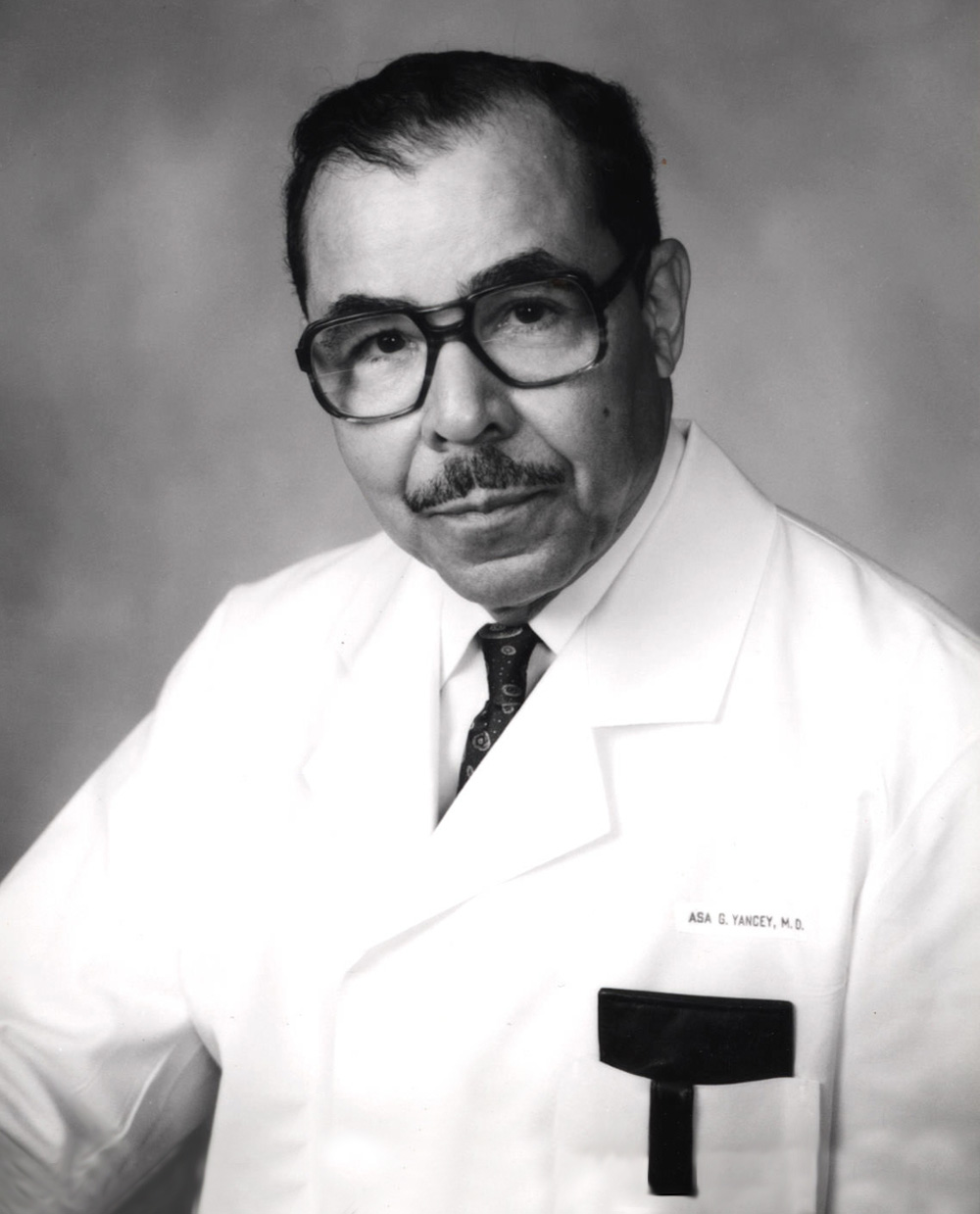
1966
Garland Perdue, MD, Chief of the Emory Division of Vascular Surgery from 1960-1984, served as primary surgeon on the first kidney transplant performed in Georgia.
1971
W. Dean Warren, MD, became the third Whitehead Chair of Surgery and served until 1989. He was a leading investigator of portal hypertension for three decades and the co-originator of the distal splenorenal shunt. Dr. Warren served as the 67th President of the American College of Surgeons in 1986.
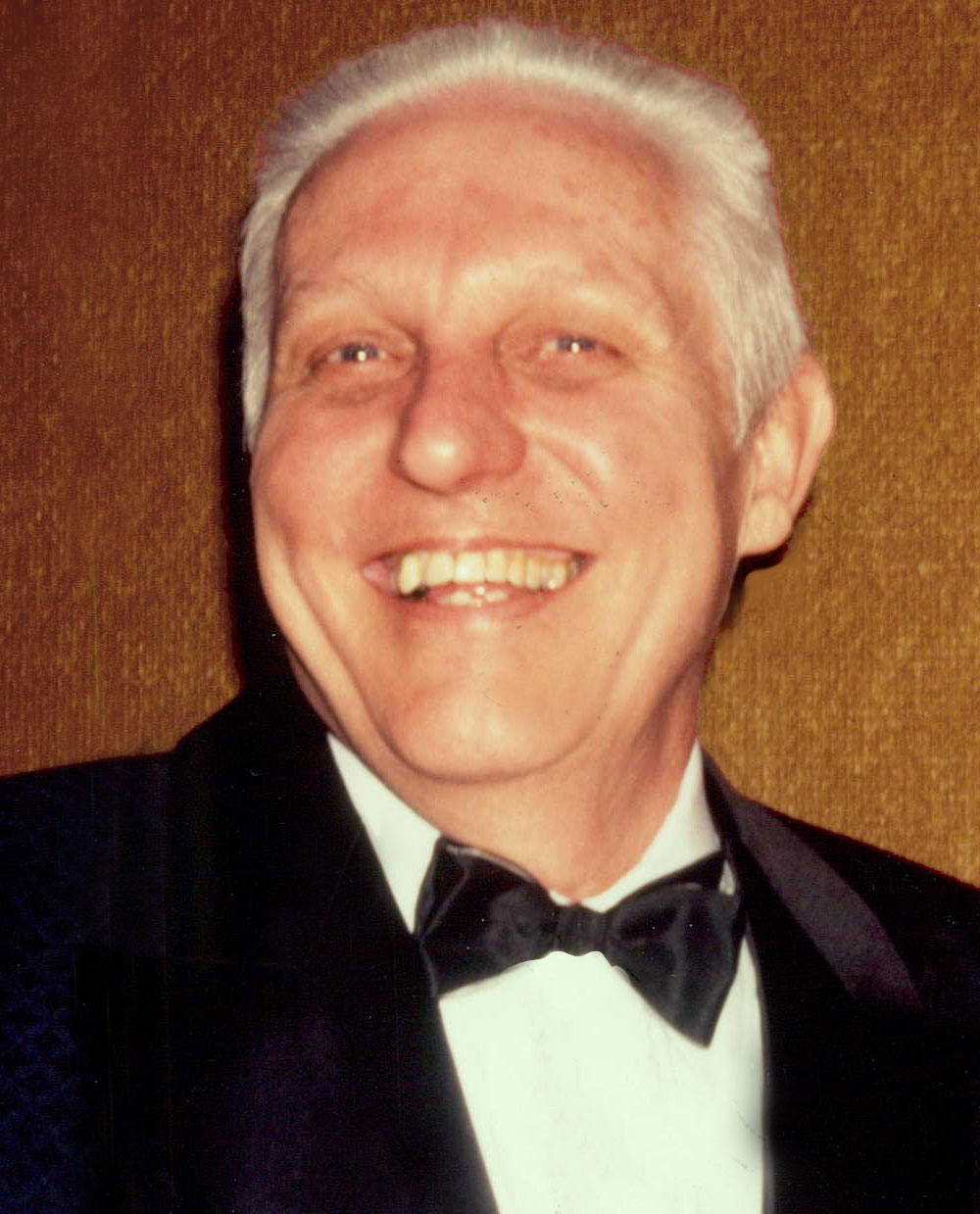
1975
Foad Nahai, MD, and other Emory plastic surgeons developed the musculocutaneous flap procedure, the foundation for techniques that are now the standard for reconstructive breast surgery.
1985
Emory surgeons completed Georgia's first heart transplant, officially establishing the Emory Department of Surgery's heart transplant program.
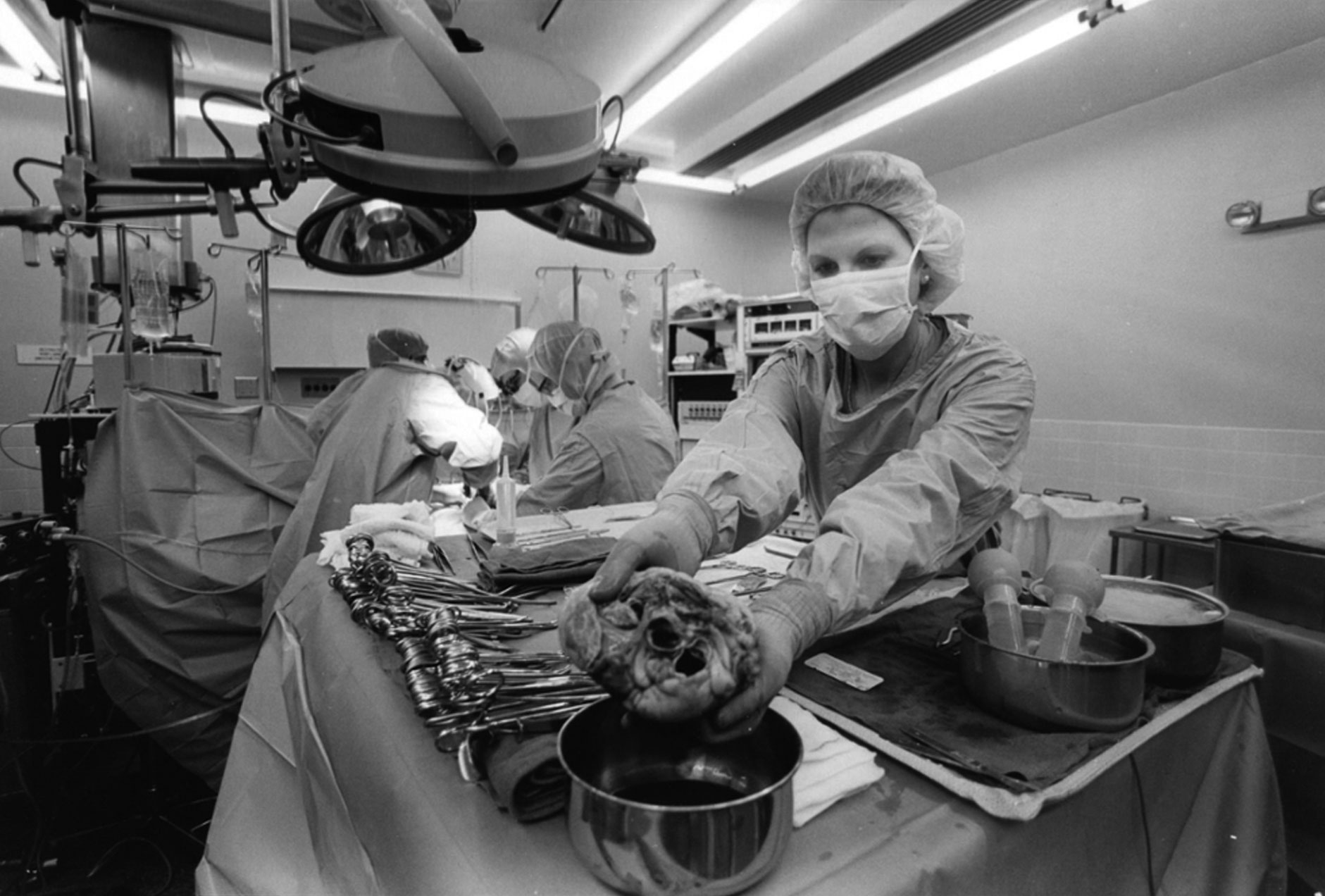
1987
Georgia's first liver transplant was performed by by Emory transplant surgeons J. Michael Henderson, MD, and William Millikan, MD.
1989
Following Dr. Warren's death from cancer in May, J. Richard Amerson, MD, served as Interim Chair, after which Robert Smith, III, MD, served in an acting capacity until 1991. Dr. Smith had previously been Chief of the Division of Vascular Surgery from 1984-1988.
Georgia's first kidney-pancreas transplant was performed by Emory Surgery transplant surgeons Richard Olson, MD, and John Whelchel, MD.
Maurice Jurkiewicz, MD (pictured right), the first Chief of the Emory Division of Plastic Surgery from 1971-1992, began his term as 70th President of the American College of Surgeons from 1989-1990.
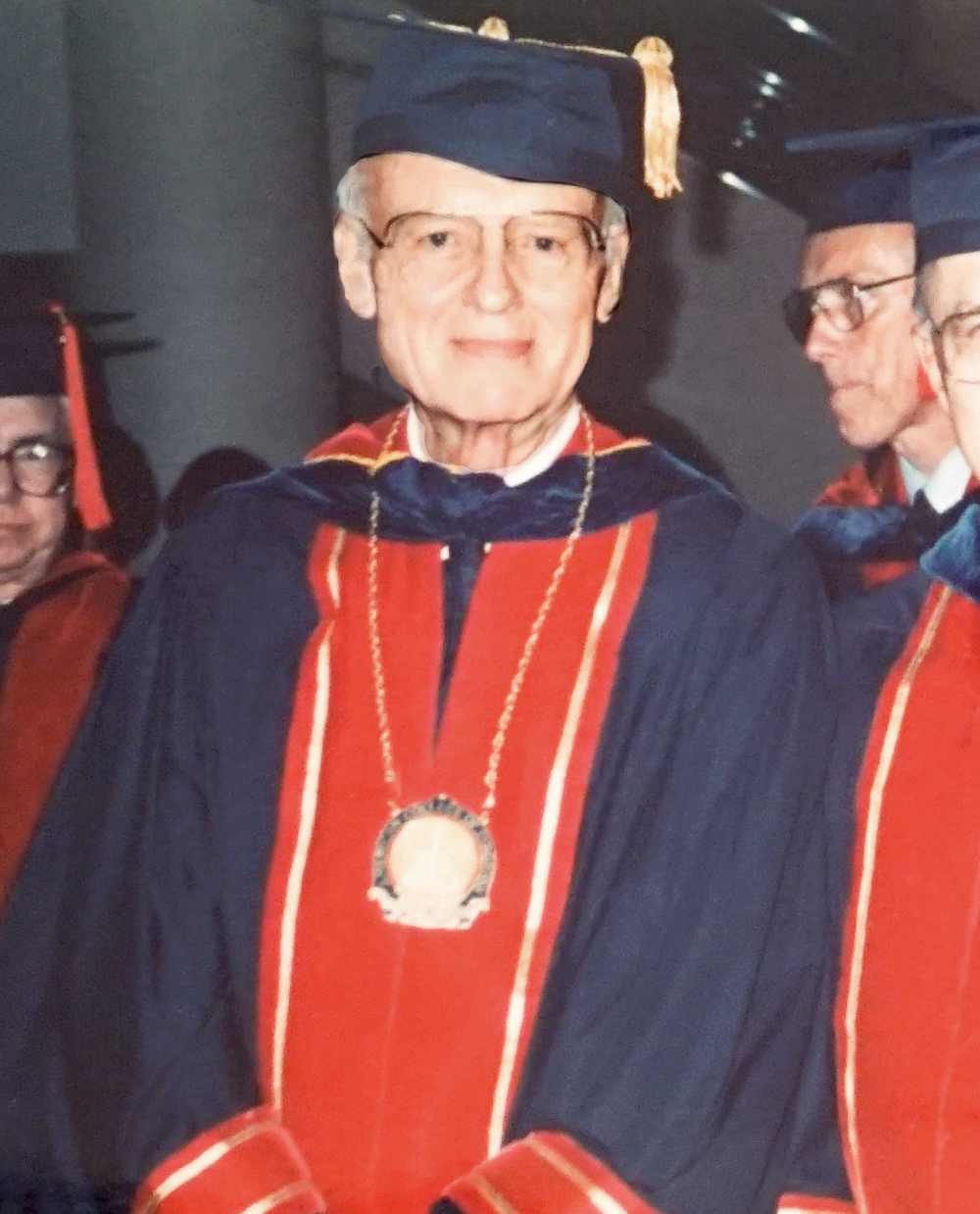
1991
William C. Wood, MD, former Medical Director of the Cancer Center and Chief of Surgical Oncology at Massachusetts General Hospital, was appointed the 4th official J.B. Whitehead Chair of Surgery. During his 18-year tenure, Dr. Wood guided the Department of Surgery from having no NIH grants when he arrived to regularly placing in the upper ranks of academic departments of surgery receiving NIH funding. He also contributed to advancing breast cancer therapy and the design and meta-analysis of conceptually driven clinical trials.
John Bostwick, MD, Chief of the Emory Division Plastic Surgery from 1992-2001, published the first edition of his landmark, two-volume atlas Plastic and Reconstructive Breast Surgery, a touchstone in the field.
Christian Larsen, MD, DPhil, and Thomas Pearson, MD, DPhil, initiated their Emory Transplant Immunology Laboratory, which became a cardinal research program in the study of the immunologic mechanisms of transplant rejection and tolerance, with the aim of achieving rejection-free transplant survival without the need for continuous drug therapy.
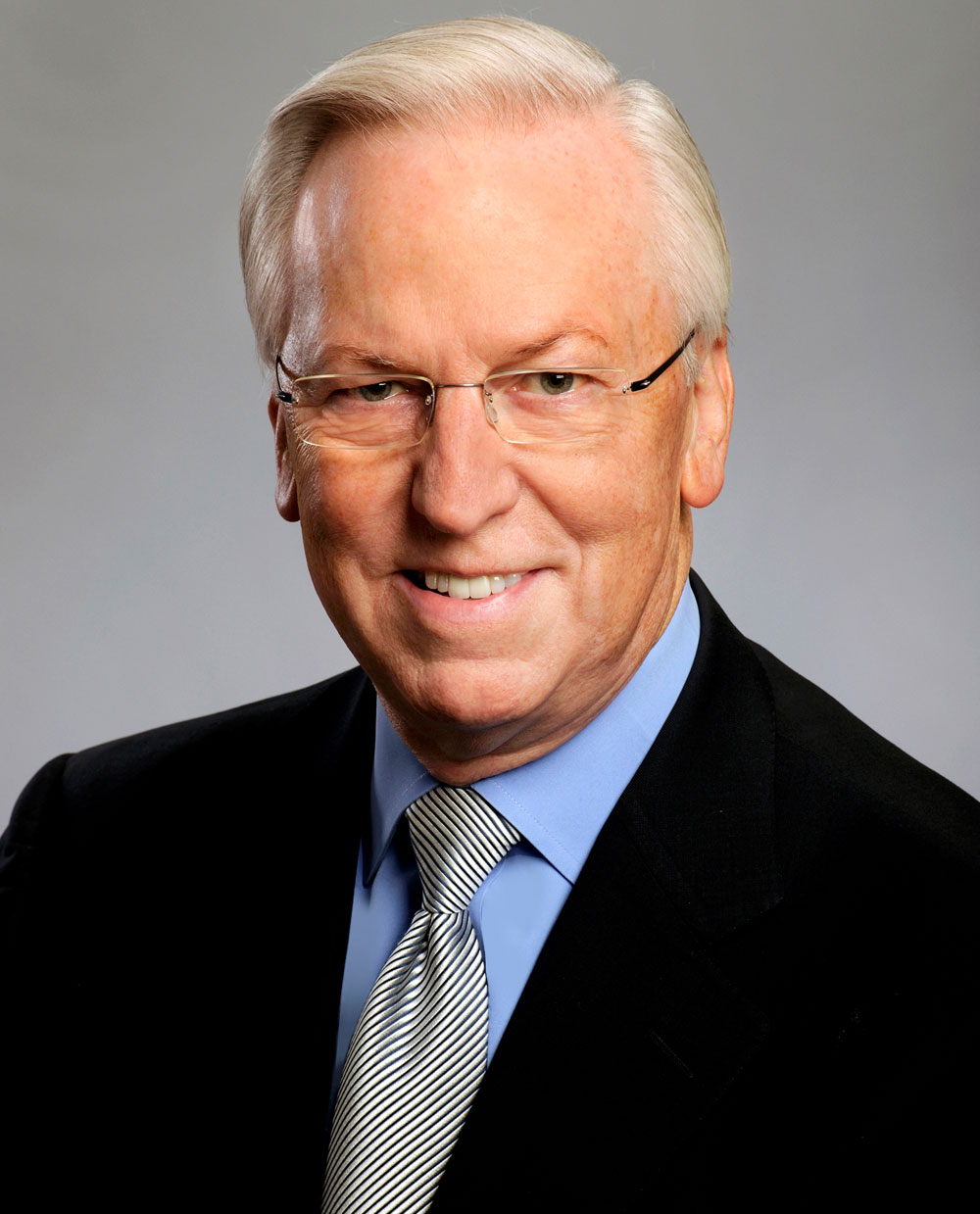
1993
Emory plastic surgeons Felmont Eaves, MD, and Carl Price, MD, adapted endoscopes for certain plastic surgery procedures; Georgia's only lung transplant program began at Emory; and Elliot Chaikof, MD, PhD, established the Department of Surgery's first program for the endovascular repair of abdominal and thoracic aortic aneurysms.
1996
Emory cardiothoracic surgeon Joseph Craver, MD, performed Georgia's first minimally invasive direct coronary artery bypass surgery.
1999
Emory cardiothoracic surgeon David Vega, MD, implanted the first ventricular assist device (VAD) in Georgia to be used as a bridge to transplant.
2000
Several significant, foundational research efforts began that increased the Department of Surgery's funding portfolio for years to come:
Lily Yang, MD, PhD (shown below with frequent collaborator Hui Mao, PhD), began leading and gaining NIH funding for novel cancer imaging and targeted therapeutic agent projects.
Collin Weber, MD, expanded his research involving cross-species islet transplantation and protective encapsulation of transplanted islets to combat Type 1 diabetes.
Elliot Chaikof, MD, PhD, Chief of the Division of Vascular Surgery from 2001-2010, increased his focus on developing endovascular therapies, novel biologics, and tissue engineered products for treatment of aortic aneurysms, carotid disease, and peripheral arterial disease.
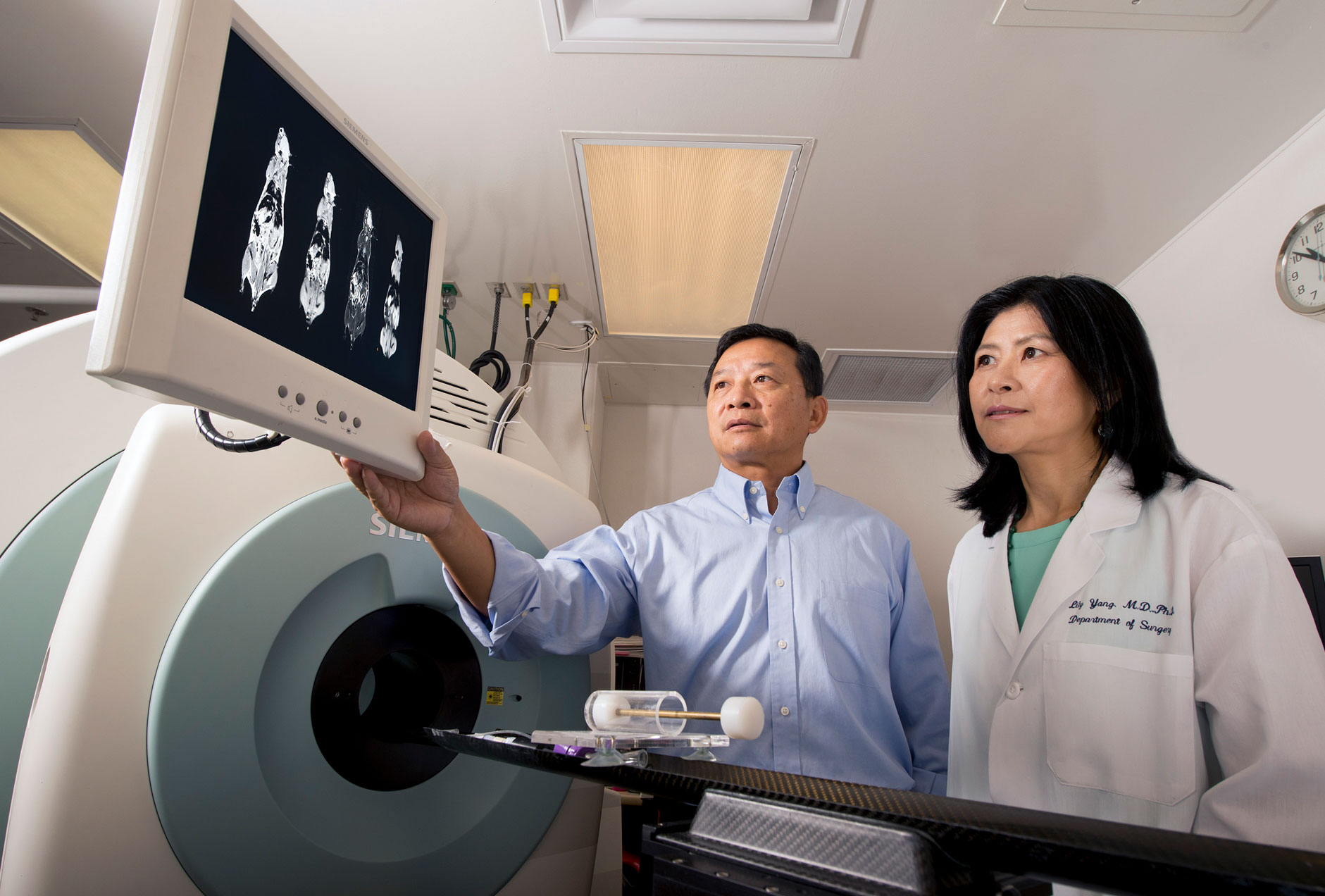
2003
Dr. Larsen and Dr. Pearson performed Georgia's first islet transplant.
2006
Dr. Vega and his surgical team implanted Georgia's first VAD as a means of providing permanent therapy for heart failure rather than as a bridge to transplant.
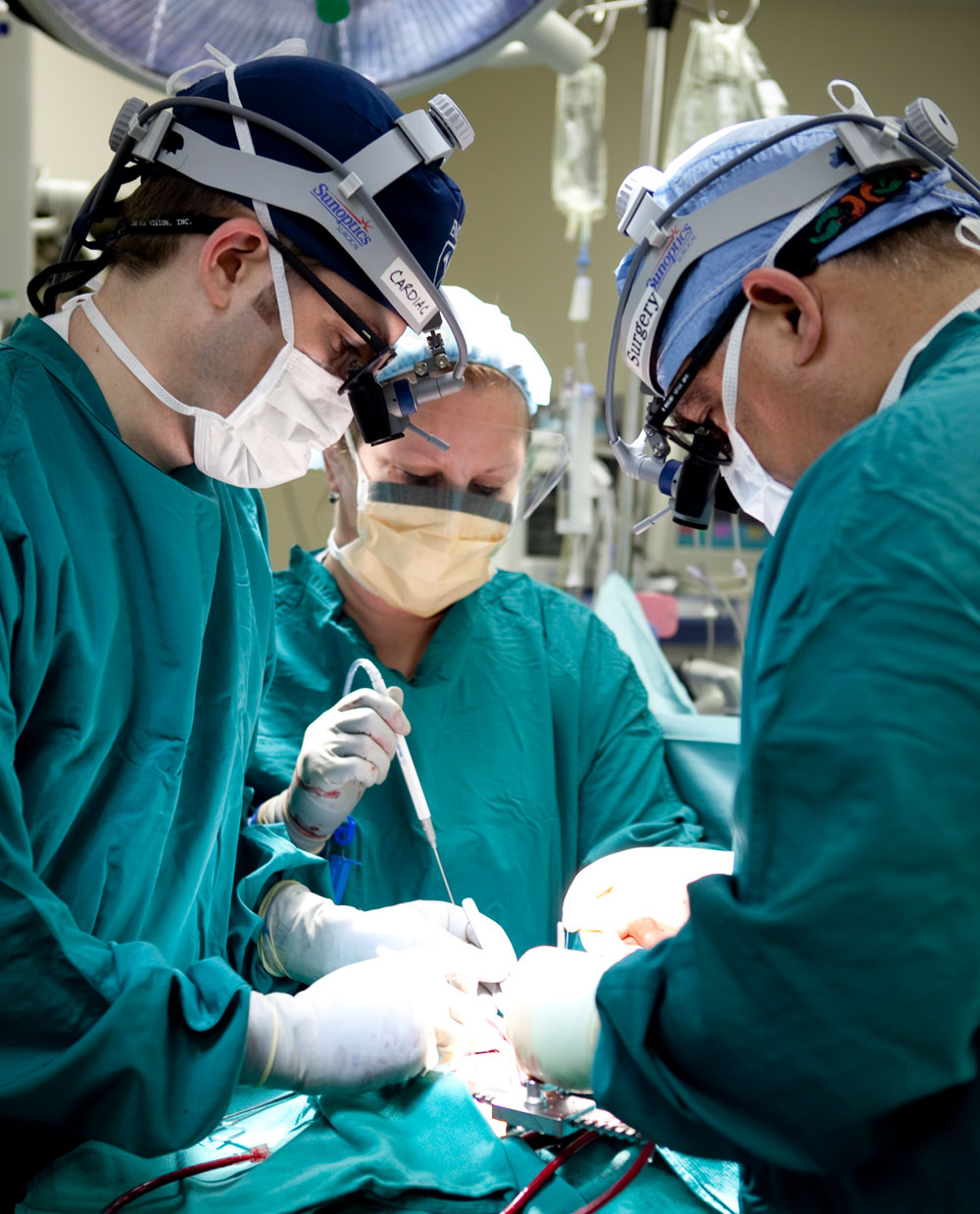
2008
The Emory Department of Surgery began placing in the top 20 of all departments of surgery nationwide in annual NIH funding in FY2008 and has continued doing so ever since, enhancing the potential for our discoveries to translate into transformative changes in patient care.
Kirk Kanter, MD, performed Georgia's first pediatric Berlin Heart surgery.
Juan Sarmiento, MD, implemented a minimally invasive liver surgery program that included pioneering techniques for laparoscopic-assisted full right hepatectomies involving extremely small incisions.
2009
Dr. Larsen succeeded Dr. Wood as J.B. Whitehead Chair of Surgery. He continued his work with Dr. Pearson to develop a new class of immunosuppressive drugs known as costimulation blockers. One such drug was belatacept, which Drs. Larsen and Pearson and researchers at Bristol Myers Squibb began developing in the 1990s as a less toxic alternative to standard immunosuppressants.
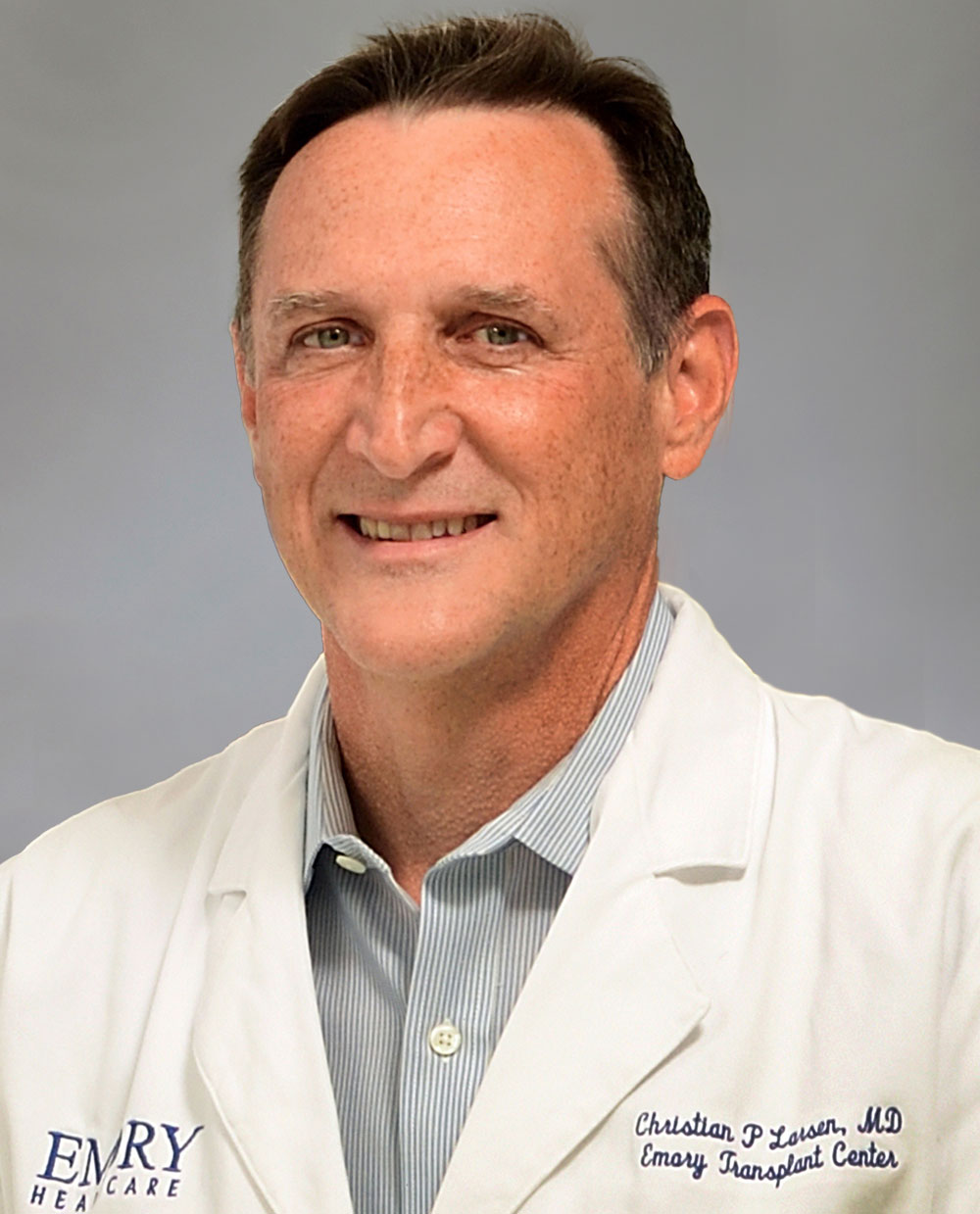
2010
Emory cardiothoracic surgeon Seth Force, MD, performed Emory's 300th lung transplant.
2011
Belatacept is approved by the FDA for kidney transplant recipients.
Emory's first hand transplant was completed by a surgical team led by Linda Cendales, MD.
2012
Jonathan Pollock, MD, inaugurates the General Surgery Residency’s global surgery rotation at Soddo Christian Hospital in Soddo, Wolaita, Ethiopia. Dr. Pollock managed the Soddo rotation onsite for nearly five years thereafter.
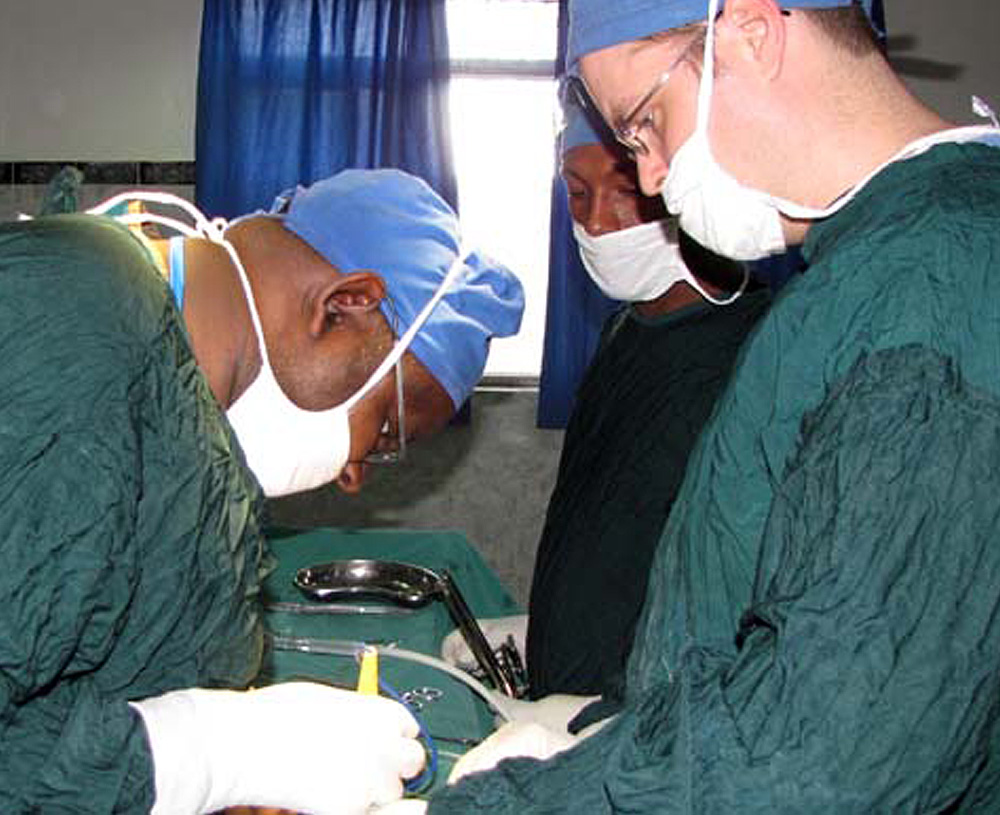
2013
Dr. Larsen was appointed Dean of the Emory University School of Medicine, serving until 2016, when he stepped down to return to his clinical and research practice. John Sweeney, MD, began serving as Interim Chair of Emory Surgery.
2014
Grady Memorial Hospital's Level I trauma center becomes the local site for the Department of Defense-sponsored, multi-institutional Surgical Critical Care Initiative (SC2i), which worked to translate decision-making tools developed by the DoD for the battlefield to civilian critical care. Christopher Dente, MD, was the local Principal Investigator.
The Emory Electronic ICU (eICU), designed and directed by Timothy Buchman, PhD, MD, became operational. The eICU digitally linked the ICU's at Emory Saint Joseph's Hospital, Emory University Hospital, Emory University Hospital Midtown, East Georgia Regional Medical Center, and Emory Johns Creek Hospital for remote, 24-7 patient monitoring.

2015
Dr. Sweeney was appointed the 5th J.B. Whitehead Professor and Chair of the Emory Department of Surgery. He originally joined the department in 2007 as Chief of the Division of General and Gastrointestinal Surgery. He also served as Chief Quality Officer for Emory Surgery from 2008-2016. Since 2013, Dr. Sweeney has conducted collaborative studies with James C. Cox, PhD, Director of the Experimental Economics Center of the Andrew Young School of Policy Studies at Georgia State University. These studies are concerned with reducing costs and hospital readmissions by increasing physicians’ effectiveness in identifying the optimal time to discharge patients. Dr. Sweeney's research has received funding from such sources as the Agency for Healthcare Research and Quality and the Georgia Research Alliance.
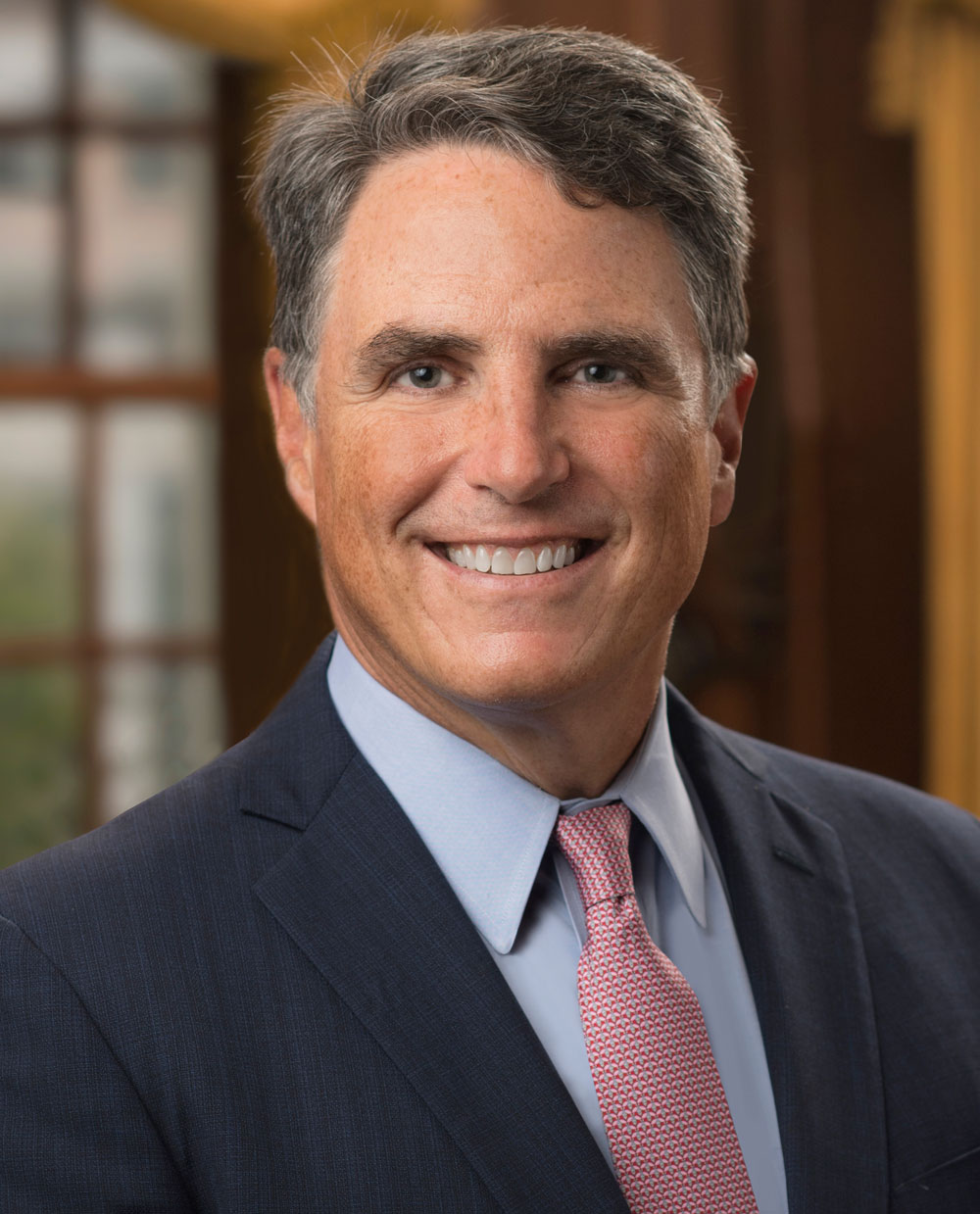
2016
Craig Coopersmith, MD, was a member of the international task force of experts that redefined the terms "sepsis" and "septic shock."
Douglas Murphy, MD, performing his 2,000th robotically assisted mitral valve surgery at Emory Saint Joseph's Hospital.
2017
Paul Tso, MD, performed the Emory Transplant Center's first HIV-positive kidney transplant from an HIV-positive donor.
2018
William Kitchens, MD, performed the Emory Transplant Center's first HIV-positive liver transplant from an HIV-positive deceased donor.
2019-Present
Please check the Department of Surgery's News and Events section for recent and current information about our accomplishments and activities.

